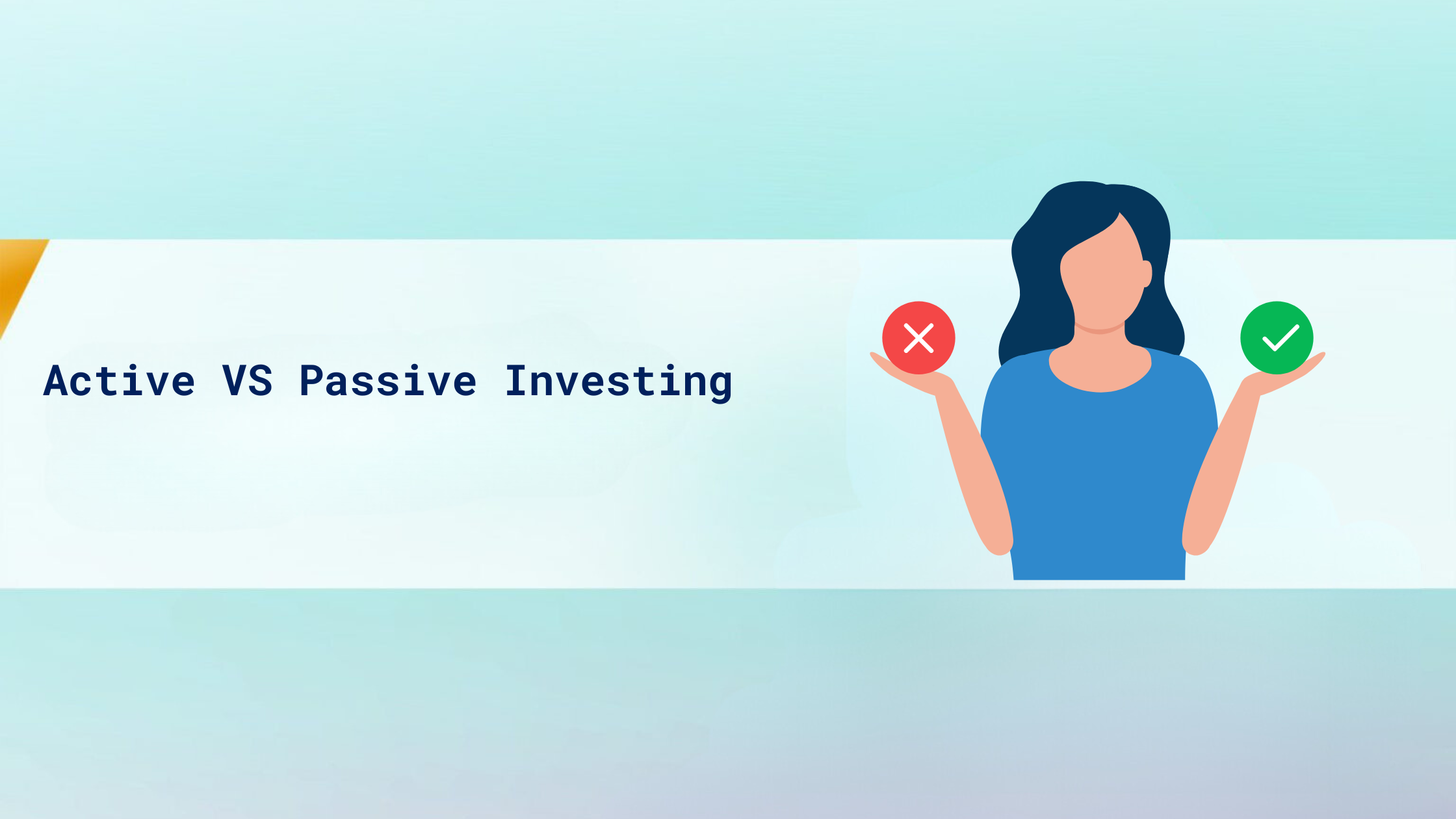Compare Investments in Nigeria
Invest online when you want at profitable rates
Editor's Picks
What are your Investment expectations?
Share your investment expectations with us, and receive personalized plans backed by data and insights. This empowers you to make informed decisions that match your aspirations and risk tolerance, ensuring your financial goals are well on track.
Investment Basics
Article
How to Use AI and Data Analytics to ...
The Evolving Landscape of Investment in Nigeria Traditional paths—fixed deposits, ...
Article
5 Clear Signs It’s Time to Move Your ...
Is Your Cash Really Working for You? With inflation in Nigeria nearing 30% and ...
Article
How to Evaluate Investment Risk Like a ...
Investing offers real opportunities to grow your wealth, but every investment comes with ...
Article
Money Market Fund Returns in 2025: ...
In a year when inflation remains stubbornly above 23 percent, Nigerian money-market funds ...
Choose the best Investments for you

Money Market Fund
These funds are highly liquid and typically offer higher yields than traditional savings accounts. They are a popular choice for investors who want to earn on their cash without taking on too much risk.
Money Market Fund
Below are the typical eligibility requirements. They serve as a general guide, but each provider may have specific conditions or request further documentation. Read more
Eligibility Criteria
- Your company is registered in Nigeria as LLP, PLC or Ltd.
- Your company has been incorporated for at least 2 years.
- Your company is able to show a minimum turnover of ₦500,000 monthly.
- Your company is purchasing goods above ₦1 million on a monthly basis.
Application Requirements
- A valid email address and phone number.
- A Bank Verification Number (BVN) linked to a bank account in your name.
- A functional debit card issued by a Nigerian bank.
- A valid means of identification such as National ID card, international passport, Driver’s License or Voter’s card.
- Tax identification number (TIN).
- Completed application forms supplied by the fund providers.

Fixed Income Fund
Fixed Income Funds invest in bonds and other debt securities to generate a steady income for investors. They are low risk and suitable for investors who want to earn regular income while preserving their investment.
Fixed Income Fund
Below are the typical eligibility requirements. They serve as a general guide, but each provider may have specific conditions or request further documentation. Read more
Eligibility Criteria
- Your company is registered in Nigeria as LLP, PLC or Ltd.
- Your company has been incorporated for at least 2 years.
- Your company is able to show a minimum turnover of ₦500,000 monthly.
- Your company is purchasing goods above ₦1 million on a monthly basis.
Application Requirements
- A valid email address and phone number.
- A Bank Verification Number (BVN) linked to a bank account in your name.
- A functional debit card issued by a Nigerian bank.
- A valid means of identification such as National ID card, international passport, Driver’s License or Voter’s card.
- Tax identification number (TIN).
Equity Fund
Equity funds, also known as stock funds, offer you the chance to own shares in a diverse array of companies by pooling resources with other investors. They're ideal for investors seeking long-term capital growth through investments.
Equity Fund
Below are the typical eligibility requirements. They serve as a general guide, but each provider may have specific conditions or request further documentation. Read more
Eligibility Criteria
- Your company must be registered in Nigeria as LLP, PLC, or Ltd.
- Your company must have been incorporated for at least 2 years.
- Your company should demonstrate a minimum monthly turnover of ₦1,000,000.
- Your company should be engaged in purchasing goods or services valued at a minimum of ₦2 million monthly.
Application Requirements
- A valid email address and phone number.
- A Bank Verification Number (BVN) linked to a bank account in your name.
- A functional debit card issued by a Nigerian bank.
- A valid means of identification such as a National ID card, international passport, Driver’s License, or Voter’s card.
- Tax Identification Number (TIN).

Balanced Fund
These provide a balanced investment strategy by combining stocks and bonds in one portfolio.This approach aims to grow your investment while also reducing risk by spreading it out. Balanced funds are ideal for investors seeking moderate growth with reduced risk.
Balanced Fund
Below are the typical eligibility requirements. They serve as a general guide, but each provider may have specific conditions or request further documentation. Read more
Eligibility Criteria
- Your company must be registered in Nigeria as LLP, PLC, or Ltd.
- Your company must have been incorporated for at least 2 years.
- Your company should demonstrate a minimum monthly turnover of ₦750,000.
- Your company should be engaged in purchasing goods or services valued at a minimum of ₦1.5 million monthly.
Application Requirements
- A valid email address and phone number.
- A Bank Verification Number (BVN) linked to a bank account in your name.
- A functional debit card issued by a Nigerian bank.
- A valid means of identification such as a National ID card, international passport, Driver’s License, or Voter’s card.
- Tax Identification Number (TIN).
.png)
Dollar Fund
Dollar Fund is your gateway to hassle-free dollar investments, offering a secure way to grow your funds in a stable currency. Whether diversifying your portfolio or safeguarding your investments, Dollar Fund makes it simple and effective. Start building wealth in dollars today and invest with peace of mind.
Dollar Fund
Below are the typical eligibility requirements. They serve as a general guide, but each provider may have specific conditions or request further documentation. Read more
Eligibility Criteria
- Your company must be registered in Nigeria with the Corporate Affairs Commission (CAC).
Application Requirements
- A valid email address and phone number.
- A Bank Verification Number (BVN) linked to a bank account in your name.
- A functional debit card issued by a Nigerian bank.
- A valid means of identification such as a National ID card, international passport, Driver’s License, or Voter’s card.
- Tax Identification Number (TIN).
Investment calculator
We answered some questions, so you don't have to ask them
What is the difference between short-term and long-term investments?
Short-term investments and long-term investments differ primarily in their investment duration and objectives. Short-term investments are typically held for a brief period, usually one year or less, and aim to preserve capital while providing liquidity.
On the other hand, long-term investments are held for an extended period, often several years or decades, with the goal of achieving capital appreciation and growing wealth over time.
How do I choose the right investment for me?
Choosing the right investment depends on your goals, risk tolerance, and timing. Research different investment options on nairaCompare, also consider seeking advice from financial professionals, and align your choices with what you're comfortable with and what you're aiming to achieve.
What is the difference between saving and investing?
Saving involves setting aside money in a secure account, like a savings account or fixed deposit, with the intention of preserving your funds and having quick access to them. While savings are important for short-term goals and emergencies, they typically yield lower returns over time.
On the other hand, investing involves putting your money into assets such as stocks, bonds, or real estate, with the aim of potentially earning higher returns over an extended period. Investing carries more risk than saving but offers the potential for greater wealth accumulation and achieving long-term financial goals, such as retirement or funding major life milestones.
How do I build a diversified investment portfolio?
Diversification involves spreading your investments across different asset classes to reduce risk. It helps minimize the impact of poor performance in one investment on your overall portfolio and can enhance long-term stability. Building a diversified investment portfolio involves strategically spreading your investments across a variety of assets to reduce risk and optimize potential returns. Diversifying your investments and having a long-term perspective can help cushion the impact of losses and potentially recover over time.
What is the difference between stocks and bonds?
Stocks represent ownership in a company, offering high returns but also higher risks. Bonds, on the other hand, are debt instruments where investors lend money to issuers (like governments or corporations) and receive fixed interest payments over time with lower risk compared to stocks.
Compare Investment Plans
Grow Your Wealth with Tailored Investment Options!
Investment plans offer a structured way to grow your savings and reach your long-term financial goals. At nairaCompare, we help you compare a variety of investment plans, including fixed deposits, bonds, and mutual funds, to find the best options for your risk appetite and financial objectives.

Compare Investment Returns
- Easily view potential returns from various investment options to choose the most profitable plans.
.png)
Assess Risk Levels
- We provide detailed risk profiles for each investment option, helping you make smart, informed choices.
.png)
Online Investment Plan Comparison
- Save time by comparing different investment plans all in one place with our user-friendly platform.
.png)
Access to Top Investment Providers:
- Partnering with leading financial institutions, we bring you high-quality investment options that align with your goals.
What our users say about us
See all reviewsGrenadines Homes
One stop shop for everything about loans. Naira Compare will not just helps you compare loans, they also help you secure it. I enjoyed the service.
August, 2021

Taibat Orogho
Just the service I needed. Helps users compare loans and other financial products, and make informed decisions. It is also very simple and easy to navigate!
November, 2022

Promise Ndah
No stress at all, thank you very much, really appreciate.
October, 2022

Okebukunola Wuraola
Makes the loan process very easy. You can compare loans in one place and make decisions.
August, 2021
Subscribe For Financial Tips and Offers!
Sign up for our newsletter to get the best offers, expert advice, and more!
By continuing, you agree to our Terms & Conditions and Privacy Policy.






.png?width=58&height=58&name=Group%20(4).png)








